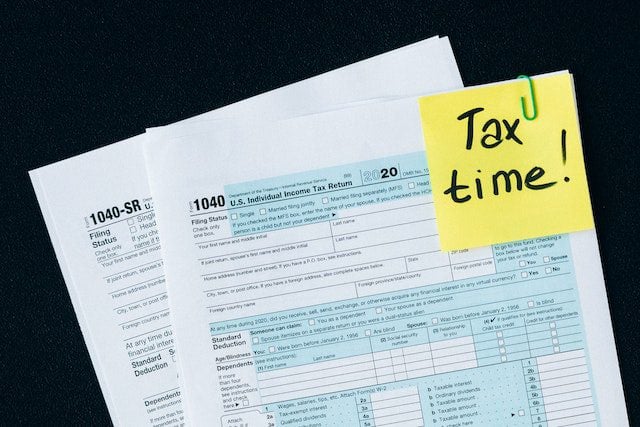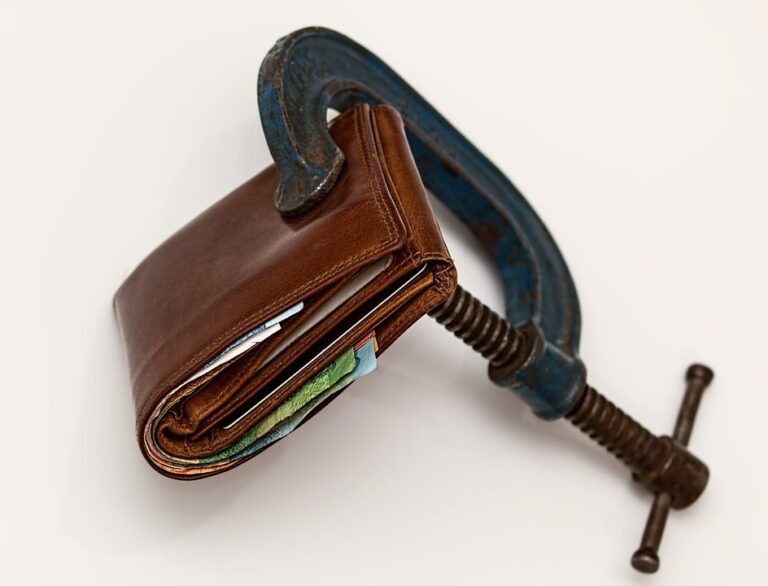Tax Consequences of Selling Your Home
By Kelly Hanley, Esq. (312-345-5440)
Selling a house seems to summon a tornado of paperwork, logistics, and, yes, a whirlwind of tax implications. Just as you’ve relished in the joy of profiting from the sale of your property, Uncle Sam emerges, ready to take his share of the bounty. Today, we’re donning our tax attorney caps to illuminate the potential tax consequences of selling your home.
Capital Gains Tax on Real Estate: The Necessary Bite
To start off, let’s demystify a term that often chills the blood of home sellers – the capital gains tax on real estate. Simply put, this tax applies to the profit you make when you sell your house. To calculate this gain, subtract the “adjusted basis” (what you paid for the house plus any improvements) from the selling price.
Now, before you start envisioning the capital gains tax as an unscalable mountain standing between you and your profit, here’s the kicker: the tax code is not always the looming specter it appears to be.
The $250,000/$500,000 Home Sale Tax Exclusion: Your Shield in the Tax Storm
Introducing one of the more beneficial tax laws for home sellers, the $250,000/$500,000 home sale tax exclusion. If you have owned and lived in the house for at least two of the last five years before the sale, and haven’t used the exclusion on another property within the last two years, you can exclude up to $250,000 (or $500,000 for joint filers) of your gain from your income. This benefit, detailed in IRS Publication 523, is a critical weapon in the arsenal for mitigating the tax on sale of property.
The critical phrase here is “primary residence.” The tax code, in its infinite wisdom, has different rules for primary residences and investment properties. Let’s dive deeper.
The Importance of Your Primary Residence
Your principal residence, in the eyes of the IRS, is the home you live in most of the time. It’s not your summer beach house or your cozy winter cabin. It’s the house where you sleep, eat, and watch late-night reruns of classic sitcoms.
But, what if you have multiple homes and split your time between them? In that case, the IRS considers factors like your place of employment, the address on your driver’s license, and where your children go to school to determine your principal residence.
The tax consequences of selling your principal residence are quite different from selling a second home or rental property. The sale of a personal residence often offers significant tax advantages, such as the home sale exclusion mentioned earlier.
Paying Taxes on Home Sale Profit: The Math
But what about the rest of the gain? If your profit exceeds the home sale tax exclusion, you might be wondering, “do I owe taxes on the sale of my home?” Here’s where we plunge into the heart of the matter: home sale profit tax, also known as capital gains tax.
If you sell your home for more than the exclusion amount plus your adjusted basis, you’ll owe taxes on the remaining profit. For most taxpayers, the tax rate on sale of a home is either 15% or 20%, depending on your income.
Let’s illustrate with an example: If I sold my home for $800,000 and my adjusted basis is $200,000, the gain is $600,000. If I qualify for the exclusion, I can subtract $250,000 (or $500,000 if married filing jointly) from the gain, leaving $350,000 (or $100,000 for joint filers) subject to capital gains tax.
Tackling Home Sale Expenses
Amid all the number-crunching, don’t forget about “sale of home” expenses. When calculating your gain, you can deduct costs like real estate agent commissions, advertising costs, and legal fees. These deductions can make a significant difference in your final tax bill.
What If I Sold an Inherited Home?
The tax consequences of selling an inherited home differ from selling a personal residence. You typically owe capital gains tax on the difference between the selling price and the home’s fair market value at the time of the original owner’s death – a term tax professionals elegantly call “stepped-up basis.” It’s like the tax world’s version of a sci-fi time warp: no matter how long ago the original owner purchased the property, your starting point for calculating the gain is reset to their date of death.
Federal Tax on Sale of Home: Understanding the Implications
Now that we’ve covered the nuts and bolts, let’s address the elephant in the room: the income tax on the sale of home. Here, the phrase “federal tax” is important because it’s Uncle Sam who’s asking for a piece of your pie. Your state might also want a share, depending on its tax laws.
Don’t be surprised if you find a new form in your mailbox come tax season. The sale of home tax form, known as Form 1099-S, reports the proceeds from real estate transactions.
Avoid Taxes on Home Sale: Strategies to Consider
So, is there a way to avoid taxes on a home sale? Absolutely. As we’ve discussed, the tax code provides various shields to protect your hard-earned money. The $250,000/$500,000 exclusion is one of the most powerful tools at your disposal. But, another tactic might involve selling at a time when your overall income is lower, potentially reducing the capital gains tax rate.
Also, consider reinvesting the proceeds in a new home. While the old “rollover” rule requiring reinvestment within two years for tax avoidance was replaced by the home sale exclusion, reinvesting can still have other tax benefits, like deferring gain on investment property through a like-kind exchange.
Selling a house is more than just a financial transaction. It involves navigating the labyrinth of tax laws and uncovering opportunities to minimize your tax burden. Remember, while these strategies can be effective, it’s always best to consult with a tax professional to understand the specific implications for your situation.
A careful study of the tax consequences of selling your home might require donning a tax attorney’s hat. But the payoff can be a smoother home sale process, fewer surprises come tax season, and, most importantly, more money in your pocket.
When to Call The Tax Defenders: Expert Guidance at Your Fingertips
As the labyrinthine world of tax laws unfolds, you might feel like you’re navigating a dense forest with no compass. And that’s where we come in. The Tax Defenders, armed with 20 years of experience and a profound understanding of the IRS’s workings, are your beacon in the murky waters of tax implications.
Whether you’re grappling with understanding the capital gains tax, puzzled about the exemptions, or simply overwhelmed with the complexity of the tax implications of selling a home, our experts can guide you every step of the way.
Our services go beyond just tax planning. We provide a FREE attorney consultation to help you understand your unique tax situation, whether that’s planning for an upcoming home sale or dealing with a looming tax debt. We can assist you in negotiating an Offer in Compromise (OIC), setting up an Installment Agreement, tackling a Levy, or navigating an IRS Audit.
Remember, knowledge is power, and with The Tax Defenders, you have a power-packed team that enables you to take control of your financial future. Reach out to us today and let us guide you through your tax journey with precision, empathy, and expertise. Because in the world of taxes, the only thing better than a good offense is a robust defense.
Related questions
How long do you have to live in a house to avoid capital gains tax IRS?
Many believe that they must spend a lifetime in a home before they can sidestep the capital gains tax upon sale. But believe it or not, the IRS, often seen as an indomitable fortress, offers some leniency when it comes to capital gains tax on the sale of your principal residence.
The magic timeline to remember here is two out of the last five years. This requirement, while seemingly stringent, is actually remarkably forgiving. You don’t have to live in the house for two years straight. In fact, you could live there every other weekend, as long as it totals 24 months over the last five years. The IRS can be surprisingly understanding about our need for change.
Let’s illustrate with an example. Suppose you bought your home in January 2019, lived there until January 2021, and then rented it out. You decide to sell it in January 2023. You’ve lived there for two out of the last five years, so voila! You qualify for the capital gains tax exclusion, allowing you to exclude up to $250,000 (or $500,000 for married couples filing jointly) of your profit from being taxed.
But remember, life rarely fits neatly into boxes, and there are exceptions. Unforeseen circumstances like a change in employment, health conditions, or other unforeseeable events could qualify you for a partial exclusion even if you don’t meet the 2-out-of-5-years rule.
While the tax maze can seem daunting, this 2-out-of-5-years rule is one of the hidden gems that make the journey worthwhile. Just remember, as your tax sherpa, I strongly recommend consulting a tax professional to understand your unique situation and ensure you’re maximizing your tax benefits when selling your home.
Does selling a house hurt your tax return?
When it comes to taxes, the sale of a home often feels like a double-edged sword. On one side, you could be reveling in the joy of a lucrative sale, and on the other, you might be wondering if this financial windfall could leave a scar on your tax return.
Selling a house can indeed impact your tax return, but the effect isn’t always negative. How it affects you largely depends on the gain from the sale and how well you’ve navigated the tax laws.
The IRS is interested in your gain from the sale, not the total amount of money changing hands. To calculate the gain, you subtract what you paid for the house (plus any home improvements) from the selling price. If this calculation leads to a significant profit, you might be concerned about a higher tax bill.
But don’t panic yet! The IRS provides a generous tax exclusion if the house was your principal residence. This means you can exclude up to $250,000 of the gain ($500,000 for married couples) from your taxable income, effectively making it tax-free. So, if your profit falls below these thresholds, you could be dancing all the way to the bank with no tax woes to dampen your spirits.
However, if your gain exceeds these exclusion limits, you will indeed owe capital gains tax on the excess, which can affect your tax return. The tax rate can be 0%, 15%, or 20%, depending on your overall taxable income.
In short, selling a house can impact your tax return, but with strategic tax planning, it doesn’t have to hurt. It’s essential to consult with a tax professional to understand how to best navigate your unique situation, turning what might seem like a potential wound into a well-planned win.
How can I avoid paying taxes after selling my house?
The very phrase “avoid paying taxes” often strikes a chord of fear in most, but when it comes to selling your house, the IRS might surprise you with its leniency. With a little bit of strategy and knowledge of tax laws, you can potentially sidestep a considerable portion of taxes legally. Here’s how.
The most potent tool in your tax-avoidance arsenal is the $250,000/$500,000 home sale tax exclusion. This provision allows you to exclude up to $250,000 (or $500,000 for married couples filing jointly) of the gain from the sale of your principal residence. The key here is that you must have lived in the house as your main home for at least two of the last five years prior to the sale.
What if your profit exceeds the exclusion limit? If that’s the case, you may owe capital gains tax on the remainder. However, not all is lost. When calculating your gain, you can deduct the costs associated with improving and selling your home. This might include everything from a new roof to real estate agent fees, which can help reduce your taxable profit.
If you’re selling an investment property, consider a like-kind exchange, also known as a 1031 exchange. This allows you to defer paying taxes on the gain if you reinvest the proceeds in similar property.
But what if you’ve inherited the home? The tax rules are a little different here, as you get a “step-up” in basis, which essentially resets the value of the home to its value at the time of the previous owner’s death. This can significantly reduce your gain and thus your potential tax liability.
Navigating the maze of tax laws can be daunting, and it’s crucial to consult a tax professional to understand your specific situation and the best tax strategy for you. The goal is to minimize your tax liability legally and make the most of your home sale.
How to avoid capital gains tax on real estate?
With real estate prices soaring, the potential for a hefty capital gains tax bill can seem like a daunting cloud over your head. But fear not, for there are legitimate strategies to navigate around this tax storm.
1. Residential Sale Exclusion: For most people, the $250,000 ($500,000 for married couples) home sale tax exclusion is the easiest and most powerful way to avoid capital gains tax on real estate. This tax bonanza applies if you’ve lived in your home as your primary residence for at least two of the last five years.
2. Home Improvements: The IRS allows you to add the cost of significant home improvements to the base cost of your property, effectively decreasing your taxable gain. A word to the wise, keep those receipts for new windows, roofs, or other qualifying improvements!
3. 1031 Exchange: If you’re dealing with investment property, a 1031 exchange (named after Section 1031 of the tax code) allows you to defer capital gains tax by reinvesting the proceeds of the sale into a similar type of investment property. This isn’t a tax-free pass, but more like a game of “kick the can” with your tax liability.
4. Step-Up in Basis: For inherited properties, you benefit from a “step-up” in basis, which resets the value of the property to the fair market value at the time of the original owner’s death. This can dramatically reduce your potential gain and associated capital gains tax.
5. Charitable Trust: If you’re feeling philanthropic and looking for a long-term strategy, consider transferring the property to a charitable remainder trust. You’ll avoid immediate capital gains tax, receive a charitable contribution deduction, and retain an income stream from the trust.
While these strategies can be effective, remember that tax laws are intricate and constantly evolving. Consulting with a tax professional can ensure that you’re making the best tax decisions when it comes to your real estate transactions.
When do I pay capital gains tax on real estate?
Ah, the question on everyone’s lips: “When do I have to part with my hard-earned money after selling real estate?” The answer is, like many things in tax law, somewhat complex, but the silver lining is that you usually have some time to prepare.
Capital gains tax on real estate comes into play when you file your income tax return for the year in which you sold the property. So, if you sell a property in June 2023, you’ll report the sale and any associated capital gains on your tax return due April 15, 2024. If your total capital gains (including those from other investments) push you into a higher tax bracket, you may need to make estimated tax payments to avoid penalties.
But remember, not every property sale results in a capital gains tax bill. If the property was your primary residence (main home) and you lived there for at least two of the last five years before the sale, you can exclude up to $250,000 ($500,000 for married couples) of your profit after a fair market value sale from capital gains tax.
Now, for investment properties, the situation gets more complicated. If you’re conducting a 1031 exchange—where you sell one investment property and purchase another similar one—you may be able to defer the capital gains tax. However, specific timelines must be met, and the exchange must be declared when you file your taxes for the year of the sale.
Understanding when and how much you’ll owe for capital gains tax is crucial to making informed real estate decisions. Tax professionals, like your friendly neighborhood tax attorney, can help you navigate these waters and keep your tax bill in check. Just remember, in the world of taxes, an early bird often gets the worm—or in this case, potentially lower taxes.
What taxes do you pay when you sell a house?
Selling a house might seem like a simple transaction, but it’s actually more like a multi-layered tax sandwich, filled with a variety of potential taxes. However, with the right recipe, it’s possible to make this sandwich a little less taxing (pun intended).
1. Capital Gains Tax: This is often the largest chunk of tax you might face when selling a home. If the sale of your house results in a profit (the selling price minus what you paid for it, plus any improvements), you may owe capital gains tax on the gain. However, the IRS provides a generous serving of relief here. If the house was your primary residence for two of the last five years, you can exclude up to $250,000 of the gain from your taxable income ($500,000 if you’re married filing jointly).
2. Real Estate Transfer Taxes: Depending on your state and local laws, you might have to pay a real estate transfer tax, which is a tax on the transfer of the title of the property from one party to another. The rate varies widely across jurisdictions, so it’s worth checking local regulations or consulting with a tax professional.
3. Income Tax: While this isn’t a direct tax on the sale, a significant profit from a home sale could push you into a higher income tax bracket, affecting your overall tax situation.
4. Property Taxes: You’ll be responsible for property taxes up until the date the sale closes. Don’t forget to factor these into your selling costs.
In the labyrinth of tax laws, it’s easy to get lost. That’s why a knowledgeable guide, such as a tax attorney, can be invaluable in navigating the winding corridors and ensuring that your tax sandwich is as lean as possible. Remember, knowledge is power, especially when it can save you money.
Is the over 55 home sale exemption still in effect?
Ah, the over-55 home sale exemption! That’s a name I haven’t heard in a while. It’s like an old film star from the Golden Age of Hollywood – once shining bright, but now largely forgotten. Well, let me lift the curtain on the mystery: the over-55 home sale exemption is no longer in effect.
Introduced in the mid-20th century, this provision allowed homeowners over the age of 55 to exclude up to $125,000 of gain from the sale of their primary residence from capital gains tax. However, in 1997, with the passage of the Taxpayer Relief Act, the over-55 exemption bid us adieu and exited stage left.
In its place, we now have a far more flexible, age-agnostic star: the $250,000/$500,000 home sale tax exclusion. This provision allows homeowners of any age to exclude up to $250,000 of gain from the sale of their main home, or primary residence, ($500,000 for married couples filing jointly) from capital gains tax, as long as they lived in the house for at least two of the last five years before the sale. This superstar of tax exemptions allows more homeowners to exclude larger amounts of gain more frequently than the former over-55 exemption.
But like a Hollywood starlet with a rider in her contract, this provision comes with conditions. Certain exceptions and limits apply, particularly if you’ve claimed the exclusion on another home sale within the previous two years.
So, while we fondly remember the over-55 home sale exemption, today’s homeowners have a more generous and accessible tax break. However, as with any tax law, the rules can be complicated, and a seasoned tax professional can be your best co-star in navigating the plot twists and turns.







